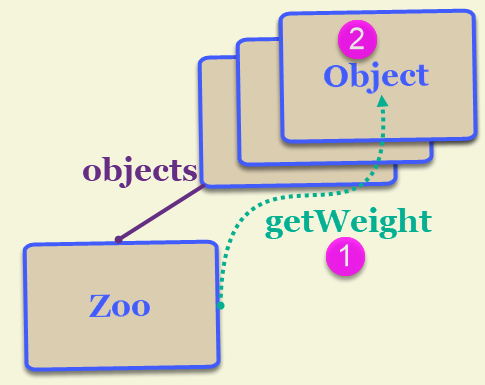- Zoo is sending our specialized message "getWeight"
- The receiver of the message is type "Object"
Type "Object" is very general and does not understand "getWeight" (in fact, it only knows a few general methods like "toString" and "equals") 😕
We need a specialized type that understands "getWeight" 👍🏽
Are you ready for Try 2?
